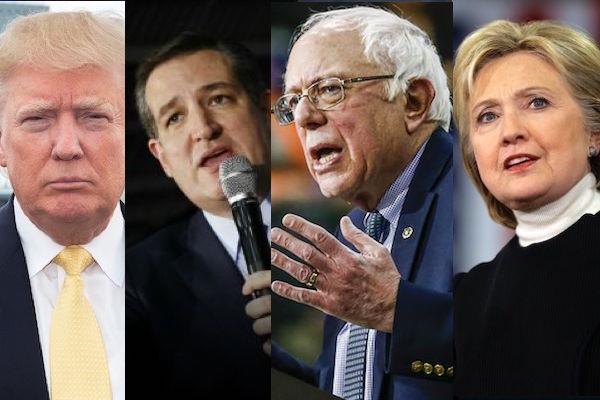
403
Sorry!!
Error! We're sorry, but the page you were looking for doesn't exist.
National Security and U.S. Immigration Policy
(MENAFN- Morocco World News) National security and immigration have been headline issues among presidential candidates in both the Republican and Democratic Party debates. Republican candidate Trump has made immigration the basis of his platform this election cycle and following the unfortunate attacks in Paris San Bernardino and most recently Brussels national security has become a recurring issue on the campaign trail. Sanders called for the continuation of President Obama's plan to accept 10000 Syrian refugees following the November Paris attacks with Clinton saying that the U.S. should accept as many as 65000. While she has stood by these numbers following the attacks in Paris and San Bernardino she has called for a more diligent screening process for refugees relocating to the U.S. Clinton also said 'It would be a cruel irony indeed if ISIS can force families from their homes and then also prevent them from ever finding new ones. We should be doing more to ease this humanitarian crisis not less' asserting that it should not be American policy to automatically disqualify refugees who come from countries like Syria and Iraq. In response to the same attacks at a Cleveland campaign rally Sen. Sanders expressed strong opposition to the efforts of Sen. Cruz and the Republican Party to block access to Syrian refugees to the U.S. saying that 'now is not the time for demagoguery and fear-mongering.' These comments highlight a strong contrast between the Democratic and Republican candidates. Donald Trump has said that he would not only prohibit refugees coming from countries like Syria and Iraq but went further to say that if elected he would have all refugees already in the U.S. deported. Cruz initially supported the acceptance of Syrian refugees but following the Paris and San Bernardino attacks proposed legislation that would temporarily block refugees from entering the U.S. while a new vetting system could be put in place. While it is never safe to assume that what a candidate says on the campaign trail will translate into actual policy once they are sworn into office on January 20 their rhetoric now does paint a general picture as to where the next president may lead U.S. foreign policy. Therefore a few things are safe to assume come inauguration day. First all candidates from both parties would most likely seek a coalition force of Western and Arab states to combat Daesh. Secondly if either of the Democratic candidates is elected a continuation of the current Iranian nuclear deal is probable. If either of the Republican candidates takes the White House they will probably fight to have the Iran deal nullified and seek to create a new agreement. Finally if either Sanders or Clinton are elected President we are likely to see a continuation of President Obama's more sympathetic approach towards refugees and immigrants. If either Cruz or Trump is elected however it is difficult to imagine how they would translate some of their more extreme views on national security and immigration issues into implementable domestic and foreign policy initiatives. Morocco World News. All Rights Reserved. This material may not be published rewritten or redistributed without permission. The views expressed in this article are the author's own and do not necessarily reflect Morocco World News' editorial policy

Legal Disclaimer:
MENAFN provides the
information “as is” without warranty of any kind. We do not accept
any responsibility or liability for the accuracy, content, images,
videos, licenses, completeness, legality, or reliability of the information
contained in this article. If you have any complaints or copyright
issues related to this article, kindly contact the provider above.


















Comments
No comment